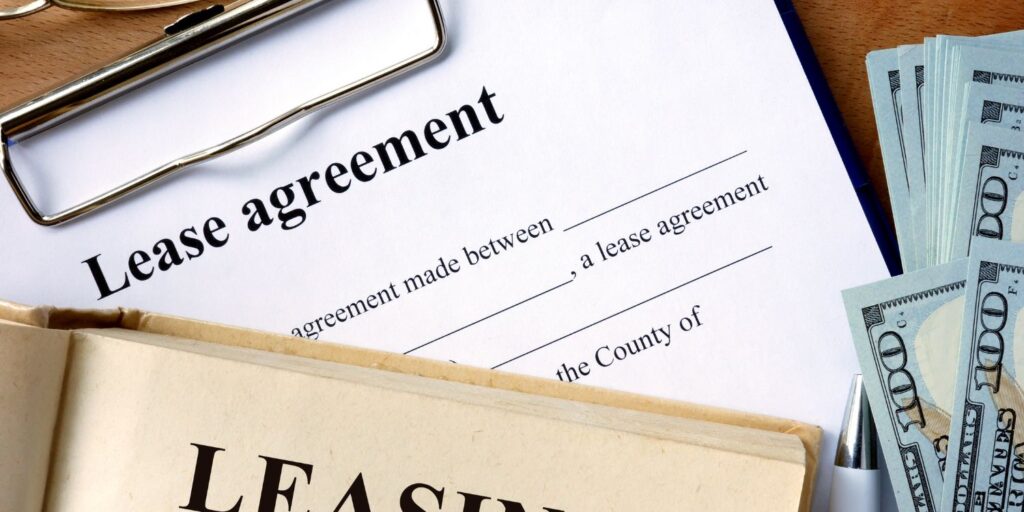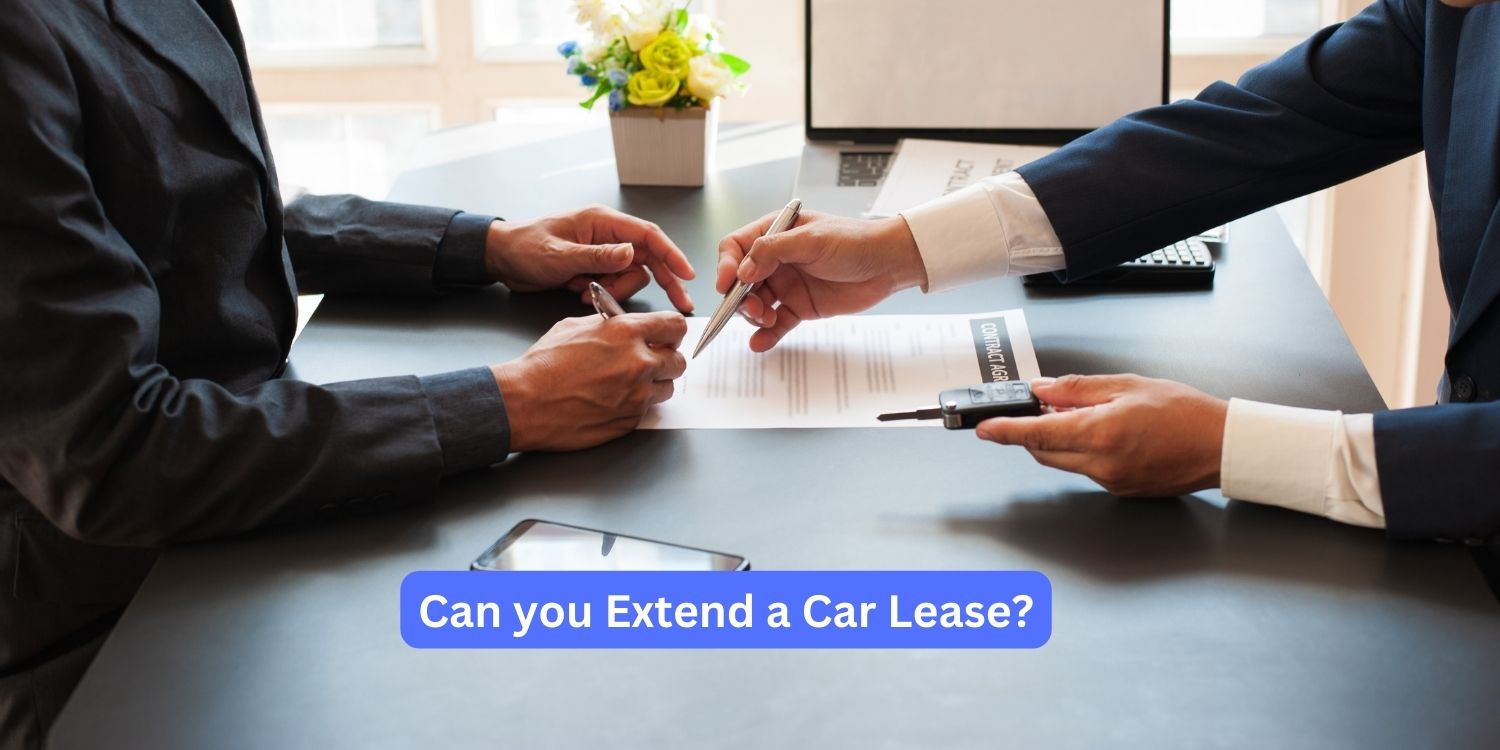Extending a car lease can be the best option if you’re not quite ready to part ways with your car. This process allows you to continue driving the car for an extended period, typically after the original lease term has ended.
In this article, I will explore the ins and outs of extending a car lease, including how to do it, what to consider, and alternative options if extending your lease isn’t the right choice for you. So let’s get started!
What are my lease extension options?
When extending your car lease, you may choose between an informal lease extension and a formal lease extension.
Informal Lease Extension
An informal lease extension is a simple agreement between you and the leasing company to extend the lease for a specified period.
This option offers flexibility, allowing for adjustments to the lease terms such as the duration of the extension and any changes in monthly payments.
The process for an informal extension is usually simple and may not require extensive paperwork.
However, it’s important to note that informal extensions may need more legal clarity and protection than a formal agreement provides.
Formal Lease Extension
A formal lease extension requires signing a new lease agreement that outlines the terms and conditions of the extension.
This option offers legal clarity and protection for both parties, as the terms of the extension are clearly defined in the new agreement.
Formal extensions may have more restrictions than informal ones, such as limitations on the duration of the extension and the ability to modify lease terms.
The process for a formal extension is typically more involved, often requiring the completion of paperwork and adherence to specific guidelines set by the leasing company.
The choice between informal and formal lease extensions depends on your flexibility and legal protection preferences.

When Should You Extend a Car Lease?
If your lease return date is approaching and you’re uncertain about your next steps, our financing team is here to assist you. Extending your lease for a brief period may be a wise decision if:
- When you’re happy with your current car and don’t want to commit to a new one.
- If you’re not ready to decide between buying a car.
- When you need more time to save up for a down payment on a new car.
- If your lifestyle or driving needs haven’t changed and your current car still meets your requirements.
- When you want to avoid the hassle of shopping for a new car and negotiating a new lease or purchase agreement.
- If you’re unsure about your plans and want to maintain flexibility.
- When you want to avoid penalties for exceeding your lease’s mileage or wear and tear limits.
How Can I officially extend your car lease?
To officially extend your car lease, follow these steps:
Contact Your Lender
Reach out to the leasing company or lender before your lease expires. Inquire about their lease extension process and the options available to you.
Review Your Lease Agreement
Carefully review your current lease agreement to understand any provisions related to lease extensions. This will help you understand the terms and conditions you must follow for the extension.
Negotiate the Terms
Discuss the terms of the lease extension with the leasing company. This may include the duration of the extension, any changes in monthly payments, and any additional fees associated with the extension.
Sign the Extension Agreement
If you and the leasing company agree, you must sign an extension agreement to formalize the new lease term. Read the agreement carefully and ask questions if you’re unsure about any terms.
Return the Agreement
Return the signed extension agreement to the leasing company per their instructions. Keep a copy of the agreement for your records.
Continue Making Payments
Continue making your lease payments as outlined in the extension agreement. Failure to do so may result in penalties or termination of the lease extension.

Is Extending Your Car Lease a Good Idea?
Extending your car lease can be a good idea in certain situations, but it’s important to know the pros and cons before deciding. Here are some factors to consider:
Read more about How Long Does a Stolen Car Investigation Take?
Pros
- Extending your lease can provide a temporary solution if you need more time to decide on your next car or financial situation.
- You’re already familiar with the vehicle, which can be beneficial if you’re happy with its performance and features.
- Extending your lease can help you avoid penalties for excess mileage or wear and tear if you’re not ready to return the car.
Cons
- Extended leases often come with higher monthly payments and overall costs than a new lease or purchase.
- Extending your lease locks you into the exact vehicle, limiting your ability to upgrade to a newer model or switch to a different type of vehicle.
- As the vehicle ages, you may be responsible for more maintenance and repairs, which can increase costs.
Things to consider before buying your lease
When contemplating buying out your lease, assessing various factors is important. Start by calculating the total cost, including any fees or charges.
Evaluate the current market value of the car and its condition, affecting its worth. Review the lease agreement for buyout terms and any restrictions.
Explore financing options and consider how buying outfits fits into your long-term plans. If possible consult with a tax advisor to understand the tax implications. By carefully considering these factors, you can make a well-informed decision.
FAQS
Some frequently asked questions about Car leasing are:
How do I calculate the total cost of buying out my lease?
Add any buyout fee, remaining lease payments, and additional charges or fees to calculate the total cost.
What factors should I consider when evaluating the market value of my leased vehicle?
Factors include the make, model, mileage, condition, and market trends for similar vehicles.
Can I negotiate the buyout price or terms with the leasing company?
Yes, in some cases, you may be able to negotiate for a lower buyout price or better terms.
Are there any tax implications for buying out my lease?
Consult with a tax advisor to understand any potential tax implications, such as sales tax or deductions.
How can I determine if buying out my lease is right for me?
Consider your financial situation future plans, and whether buying out aligns with your goals.
Comparing costs and benefits with alternative options can also help.
Conclusion
Buying out your lease requires careful consideration of cost, market value, vehicle condition, lease terms, financing options, plans, negotiation opportunities, and tax implications.
By thoroughly evaluating these factors, you can make a sound decision that aligns with your financial goals and circumstances.




